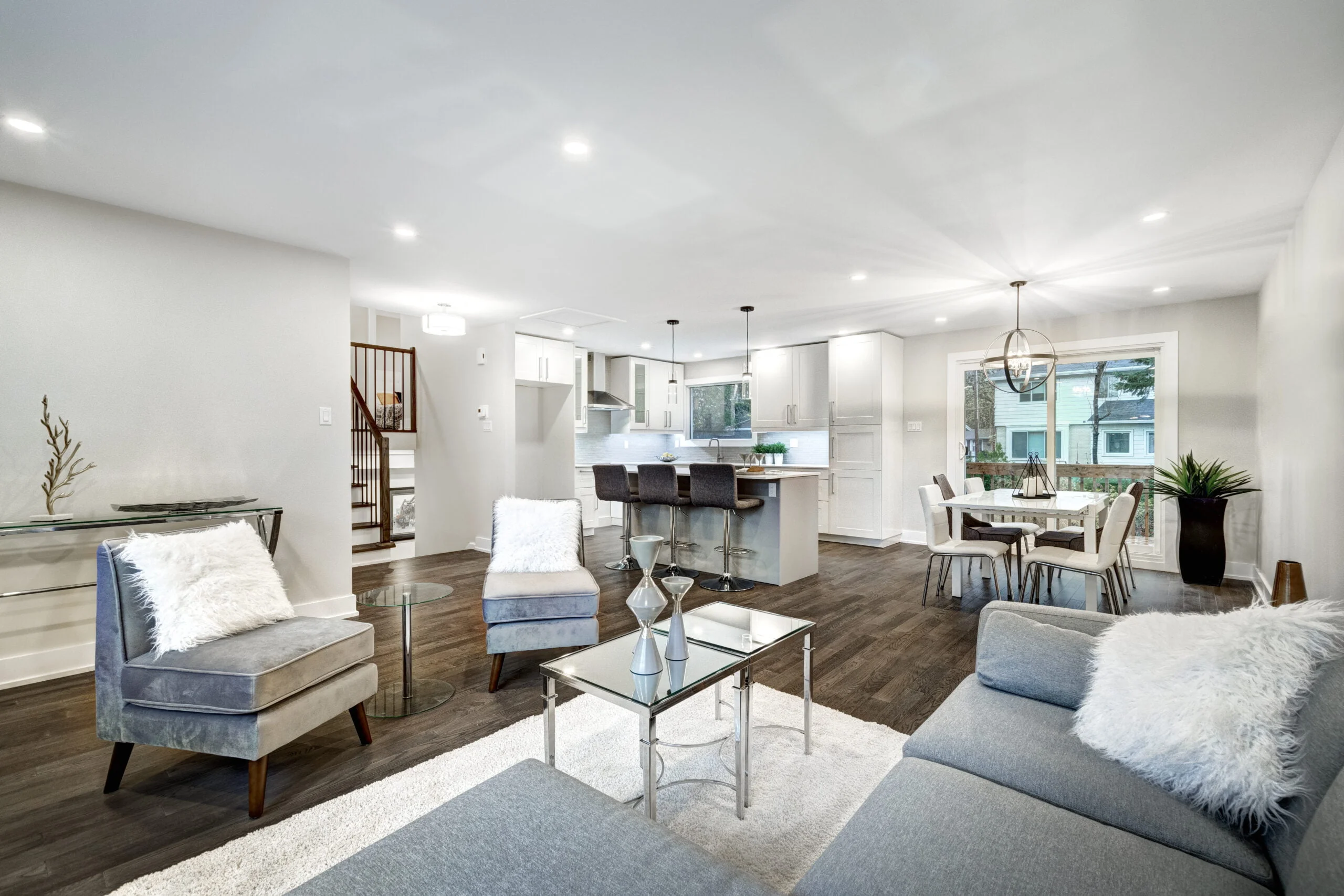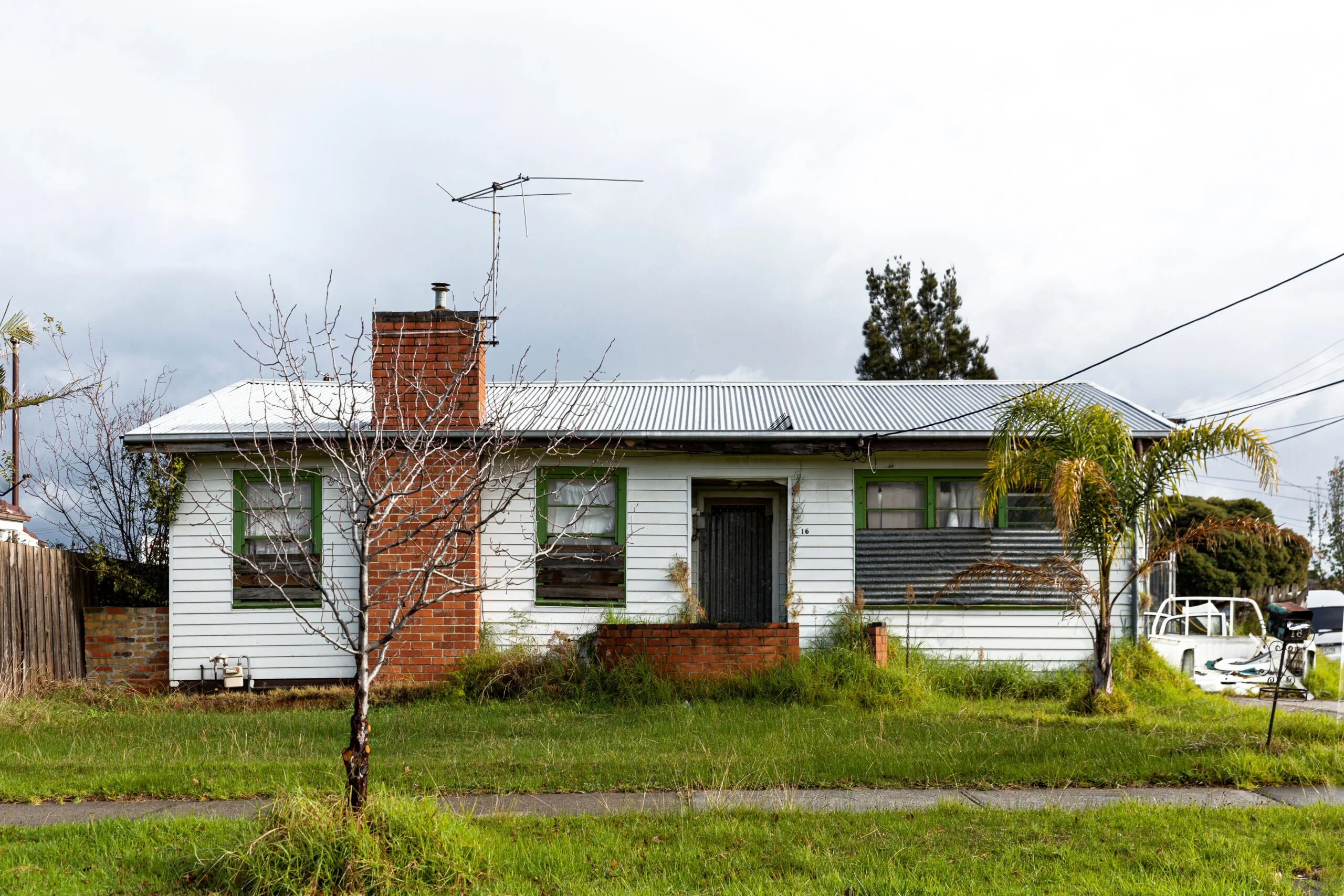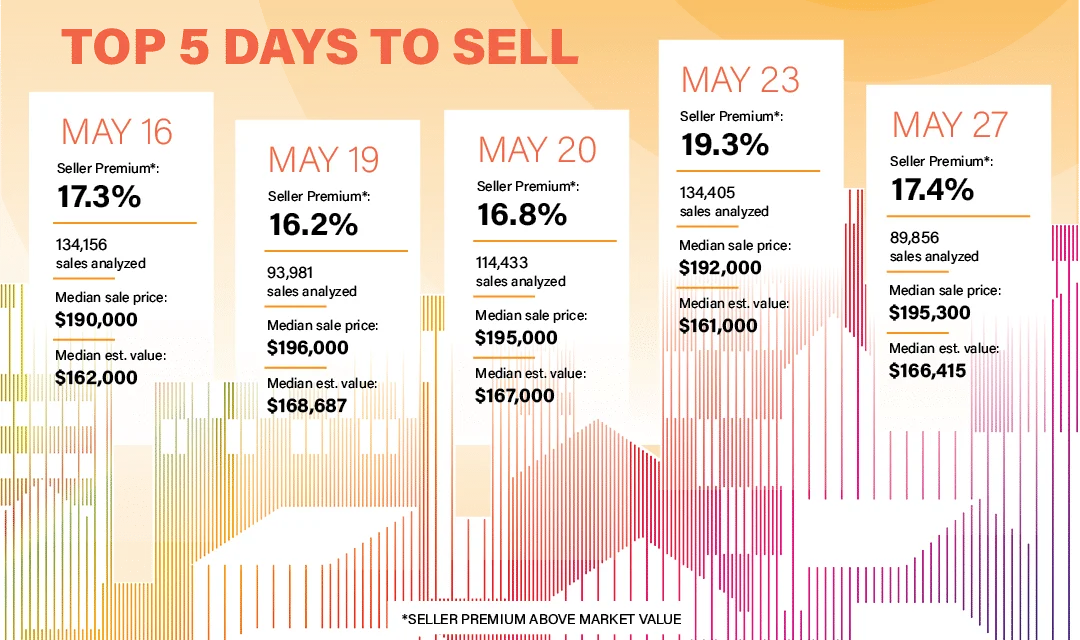If the real estate market is so hot, then why is your house not selling? When a home listing starts creeping past the local average days-on-market, sellers and their agents begin to worry that there’s something wrong. And in a hot market, that’s a valid concern.
What’s The Problem? Why is My House Not Selling in a Hot Market?
The words “hot market” or “seller’s market” have been thrown around like confetti in the past few years, but what does that really mean? In general, a market is considered hot if a majority of houses are getting offers faster than 30 to 45 days –– that’s the time frame that is considered to be a neutral or balanced market.
When a majority of houses take longer than 30 to 45 days to go under contract, then the market is called cool or termed a “buyer’s market”.
In a hot market, properties tend to move quickly, so if your listing hasn’t garnered any offers in the first couple of weeks, then that’s an indication of a problem. In fact, houses in a hot market may receive multiple offers within days of listing, thanks to high demand from buyers and a lower inventory of houses for sale.
So why is your house not selling if the market’s hot? Well, you could be looking at a few different problems: pricing, marketing, home condition, timing, or even seller resistance. We’ll take a look at each in turn, and discuss some remedies to get that home sold fast.
Why My House Is Not Selling: A Price Problem
Price tags matter, especially on significant expenditures like houses. In a hot market, sellers tend to get a little carried away with the price point for their property. They see a house down the street sell for thousands over the asking price, and they think that’s a good place to price their own home. And maybe it is … but maybe it isn’t.
In all market conditions, it’s important to thoroughly research the comps in order to form an accurate price. Maybe that house down the street had a recent kitchen update or the owners put on a new roof before listing. Perhaps they have a better view or an extra bedroom. You must take these factors into account when setting a price –– if you don’t, then the buyer’s agent certainly will.
Pricing a home for sale requires pinpoint accuracy because of buyer perception. If hot-market buyers see a listing price they perceive to be too high, then they don’t bother to look any further; they assume that they can’t make a lower offer in these market conditions.
On the flip side, if they see a listing price that’s too low, they may avoid making an offer because they assume there’s something wrong with the house.
Hot-market sellers can also be tempted to overprice by thinking, “oh, we can always lower the price later.” But that’s not really the best strategy. In this type of housing environment, buyers are constantly scouring listing sites for what’s new.
If they swipe past your listing during the first week because the price isn’t right, then you may miss your chance to catch their attention if you lower the price later. At that point it’s not a new listing anymore.
You could have a price problem if:
You haven’t gotten many showings.
Your showings haven’t led to offers.
Any offers that come in are low-balls.
Open house attendees are mostly looky-loos, not serious buyers.
Showing feedback is focused on the price.
Your comps are incompatible.
The Remedy: Reevaluate and Reprice
The key is to price right at fair market value, or even a tiny bit under, in order to give buyers the satisfaction of getting a good deal. In a hot market, fair list pricing can create a bidding war, thus driving the purchase price up to where sellers want it to be anyways.
Take another look at the most recent comparable sales. Make sure to adjust for any desirable or undesirable features on your listing. With that info in mind, re-price the home appropriately; tiny adjustments of $1,000 off this week and another $1,500 off next week aren’t going to gain the interest or momentum that you want in this market.
A good price reduction can make all the difference if the house was priced too high. In fact, according to the National Association of Realtors, 22% of sellers close on their home after one price reduction. With the latest comps in hand, repricing the home could be just what the market ordered to bring in more offers on your listing.

Why My House Is Not Selling: A Marketing Problem
Buyers can’t make an offer if they don’t know a house is for sale. Marketing a home correctly means getting the property in front of the right buyers at the right time. Typical marketing strategies include online listings and social media visibility, as well as traditional mailers, yard signs, and open houses.
A marketing problem arises when the house either isn’t presented to the right buyers or isn’t presented in a way that’s attractive to buyers. You might have really nice fliers, but when potential buyers follow up online, the photos make the house look smaller than they thought.
You might have a great new school zone, but potential buyers don’t realize it without a targeted mailer. You might have a great social media ad running, but are buyers in your price point even browsing on that platform?
You might have a marketing problem if:
The listing isn’t getting calls, clicks, or open house visits.
You didn’t invest in drone or video footage, while other listings did.
The description is lackluster or dry.
The Remedy: Reposition
When you haven’t been getting the interest you want (and you’re certain that the price is right), consider a marketing shift to reposition the home and get it in front of more buyers.
- Invest in professional photography or videography, especially if other listings have those elements. Online presence is basically the same as the first showing in today’s market, and those first impressions matter. Make sure photos look good and show off the home’s best features. Wide-angle lenses can really help create a positive impression of spaciousness.
- Rewrite the description to focus on unique, desirable features or lifestyle advantages. Remember that the basic facts are available elsewhere in the listing, so you don’t need to cover those in the narrative description. Use the narrative to sell the feeling, not the facts.
- Consider staging and/or decluttering. Homes that are too empty or too full make it hard for buyers to picture themselves living there. Even in a seller’s market, staging helps homes sell 30 times faster and for 20% more, according to the NAR.
- Target the right buyers. Unusual homes (luxury homes, custom homes, or homes that have a lot of modifications) tend to sell slower in all market conditions. Use targeted keywords on social media to attract interested buyers and network with buyers’ agents who specialize in the type of property you’re selling.

Why My House Is Not Selling: A Condition Problem
Even in a season of low inventory, homes in need of repair can make buyers hesitant to present an offer to purchase. In fact, 80% of buyers say they prefer a home with no updates needed.
Sometimes a lower price is enough to compensate for the amount of work needed, but not all buyers have the cash needed for both a downpayment and significant renovations. As such, the buyer pool for a home in need of repair could be significantly diminished, making it harder to sell even in a hot market.
You may have a home condition problem if:
The home is in obvious disrepair.
Home systems are nearing the end of their lifecycle.
The home isn’t updated.
Showings aren’t yielding offers.
Feedback indicates buyers are concerned about too much work.
The Remedy: Repair and Renovate
As much as possible, get the home in move-in-ready condition. Take care of eyesores like chipped paint or broken banisters. Make sure that all appliances are working and that major systems (like plumbing, electric, HVAC, roofing) have several years of life left. Consider making updates like fresh paint, modern fixtures, spruced-up landscaping, or maybe even a new bathroom vanity.
For repairs that aren’t feasible either from a financial or timing standpoint, a seller credit at closing could be a good solution. For example, if sellers know that the carpets need to be replaced but don’t have the time to shuffle around all the furniture, they could get a flooring quote and offer that amount to buyers in cash at closing. Be sure to mention this type of solution in the listing.
Obviously not all sellers are in a position to spend money repairing and renovating their home to typical market-ready standards, and those same sellers may not want to offer closing credits either. We’ll cover some other options for those types of scenarios below.

Why My House Is Not Selling: A House Problem
Sometimes the problem lies with the house itself. Features that are too unique or a location that’s less-than-ideal could be causing buyers to walk away, even in a hot market. While sellers might love their home’s custom recording studio, a typical buyer can’t see past the padded walls.
While sellers might love watching planes from the nearby airport, buyers may not love the extra noise. While sellers might’ve converted the garage to a rec room on purpose, buyers in that price point may be expecting a place to store their cars.
You may have a house problem if:
Buyers are turned off by the location.
Buyers are turned off by unusual features.
Buyers aren’t into a home’s customization.
Buyers can’t get a vision for how to work with the space.
The Remedy: Refocus and Reframe
To a certain extent, the house is what it is, so refocus on what makes this house special rather than what makes it odd. Reframe any unusual qualities into something that adds character or adds value for buyers. As much as possible, help buyers understand how they can use the home’s features to their advantage
Got a bungalow with a strange 70’s era sauna and only one bathroom? First, delete the sauna photos from the listing. (It may scream “weird” to a lot of buyers.) Next, mention the possibility of adding a bathroom, walk-in closet, nursery, or office in the description.
After all, the space already has plumbing, and the extra options could intrigue buyers. “Flex space” is much more salable than “sauna” to most people.
Got a starter home with a detached garage on a busy road? Mention the ability to turn the garage into an income property. Rent from a detached apartment can cover a lot of expenses for first-time homebuyers.
Reframe the busy road as a convenient location for college students, transient pilots, or young professionals; in short, think of an industry nearby that would create solid demand for tenants and use that to your advantage.

Why My House Is Not Selling: A Timing Problem
Let’s face it: markets don’t stay hot forever. If your house is priced well, shows nicely, and doesn’t need work, then the lack of interest may just come down to a timing problem. Maybe the market is beginning to cool, maybe it’s a seasonal blip, or maybe there’s an increase in supply at an ultra-local level.
Recent market updates indicate that in general, houses are still moving pretty quickly, with an average of 14 days on the market. However, agents across the country are reporting a record increase in buyers backing out of deals. With interest rates rising, some buyers can no longer qualify for the loans they need. And rising inflation has buyers questioning the wisdom of buying a house at top dollar only to see it potentially depreciate in coming months.
In addition, a hot market is still subject to the normal rise and fall of buyer activity. Selling around the holidays or around the back-to-school season isn’t the best because buyers are too busy to schedule house showings. ATTOM data reports seller premiums in May, June, and July, whereas December and October see lower prices, indicating a lack of buyer offers.

Image source: ATTOM
Finally, the timing could be bad for your house sale if there have been a lot of houses within the neighborhood listed recently. Too many of the same type of house in the same location gives buyers more supply options without a change in demand.
You may have a timing problem if:
- Your local market is slowing.
- Buyers are backing out of deals due to financing contingencies.
- Normal seasonal cycles are causing a decrease in buyer activity.
- Too many houses were recently listed in your neighborhood.
The Remedy: Reevaluate
Look at the recent days-on-market in your county. A new slowing trend might mean that you need to readjust your expectations of a speedy sale. This could also be a good time to take another look at pricing, marketing, and the home’s condition.
If your target buyers can afford less due to rising interest rates, you may need to lower your price. If you have increased competition in the neighborhood, you may need to work harder to highlight your property’s best features. And with a little extra expected time, you may want to look into planting some new shrubs or switching out dated light fixtures.
Why My House Is Not Selling: A Seller Resistance Problem
With so much hype around a seller’s market, it’s easy for sellers to get disillusioned about the current state of the local market. They hear stories of someone else’s same-day offer or fabulous purchase price, and it makes them resistant to accept anything less.
Resistant sellers might be divided into two categories: those who need to sell and those who don’t.
Sellers who don’t need to sell are probably just testing the market to see what they can get. They’ll sell if the price is right (meaning: super high), but otherwise, they really couldn’t care less. As such, they’re resistant to making price reductions or renovations.
If that’s the case, there’s not really much an agent can or should do. It doesn’t make sense for an agent to invest a lot of time or money in a listing when sellers aren’t invested in the process of selling.
However, sellers who do need to sell may be resistant because they’re in a tight situation, either from a time or financial perspective. They might be pressured by an out-of-state move or by the closing of a family member’s estate.
They may need to get a certain amount out of their house sale to cover the mortgage or other expenses, yet they may not have the cash to make repairs or offer closing credits. If that’s the case, there are other options that an agent can pursue a quicker sale.
You may have a seller’s resistance problem if:
Sellers don’t need to sell.
Sellers aren’t interested in comps or other numbers that show market reality.
Sellers are testing the market or are looking for a windfall deal.
Sellers want a certain price and nothing less.
Sellers do need to sell, but have circumstantial needs for a quick sale.
Sellers cannot or will not make repairs.
The Remedy: Reality Checks or Revised Plans
In the case of a seller who’s just testing the market, there’s little that an agent can offer except a nice reality check. Make sellers aware of changes in the market, including timing and price points.
Let them know how their house stacks up against the current competition, and how that should affect their expectations. Some agents actually take sellers on drive-bys or even schedule showings of other listings so that they can see firsthand why their property may not be moving as quickly as they want.
Sellers who are invested in the selling process will probably need a similar reality check, especially if they’ve got stars in their eyes from hearing about other people’s sales. But they could also need to be presented with alternative selling plans.
For example, certain sellers might be more apt to sell to an investor by working with a company like New Western. Investors will be looking for a bit of a discount, but they might be able to get cash-in-hand much faster than other buyers can, especially in a market that’s cooling down a bit. For some sellers, the opportunity for a quick, cash sale with no repairs is the best option.
If you’ve got a house that’s not selling, even in a hot market, it might be time to reach out to New Western. Let our agents discuss options to get that house sold fast for a fair market price.







